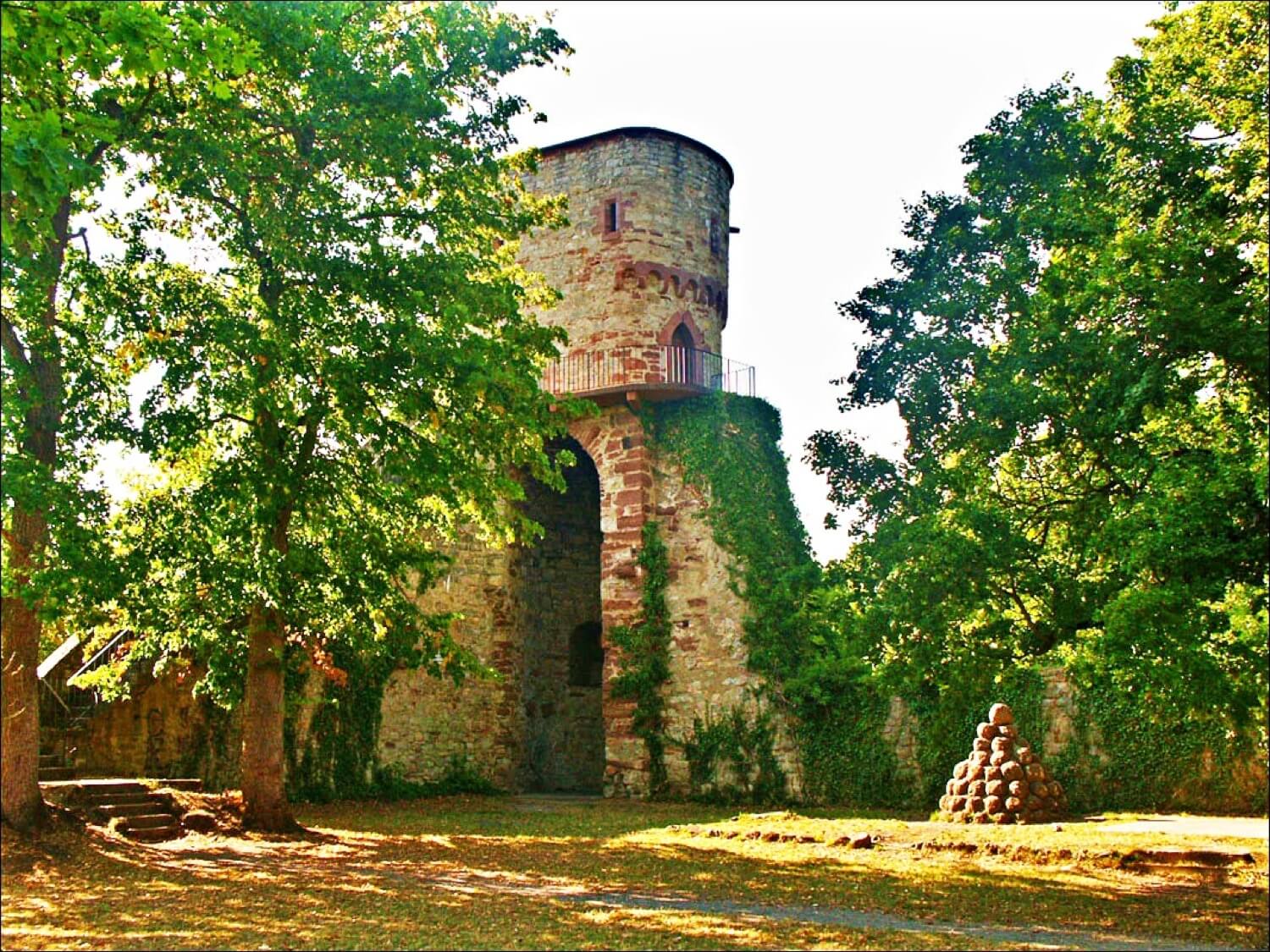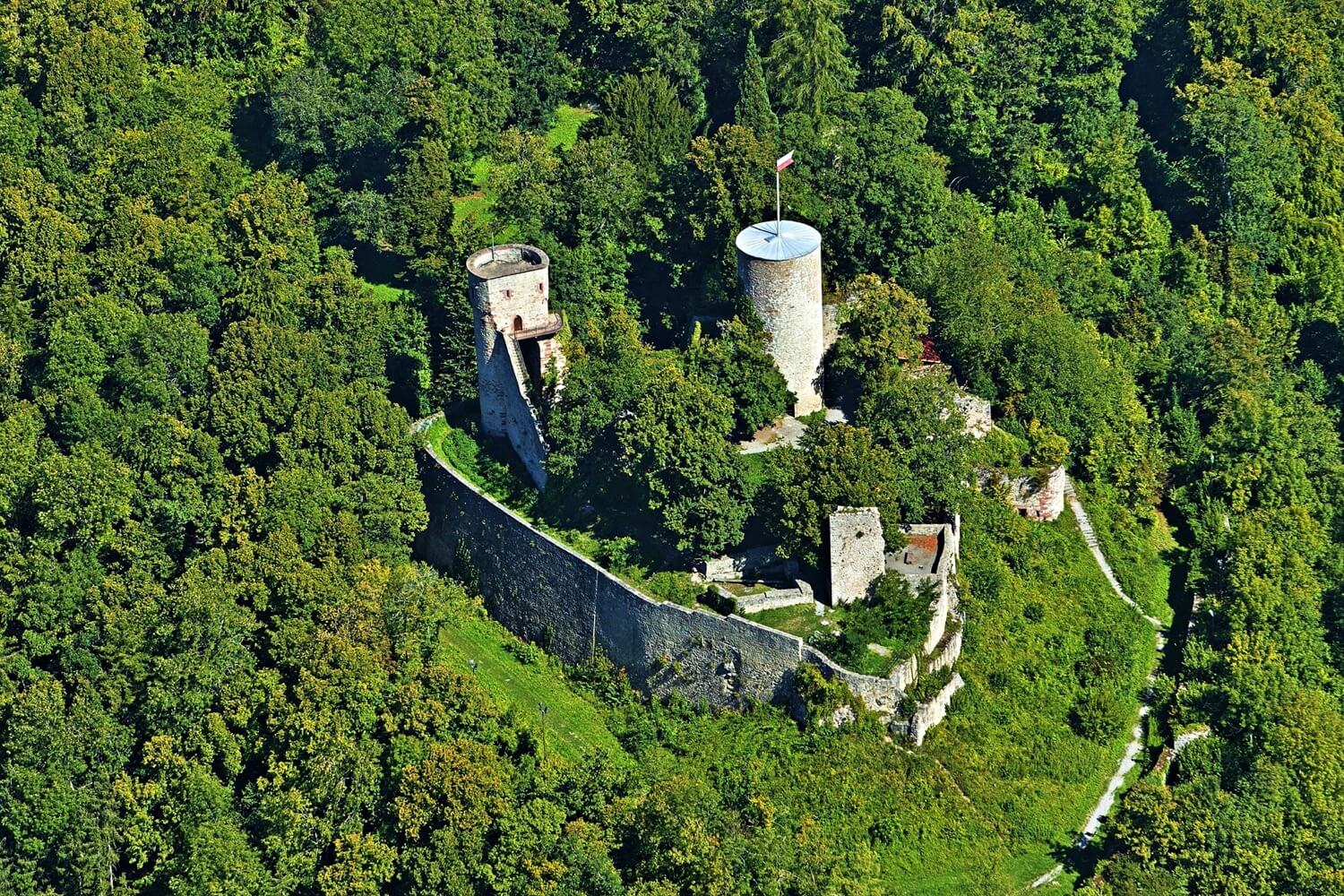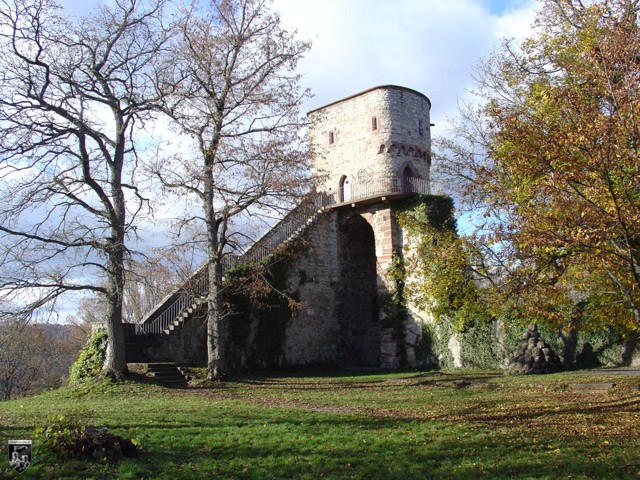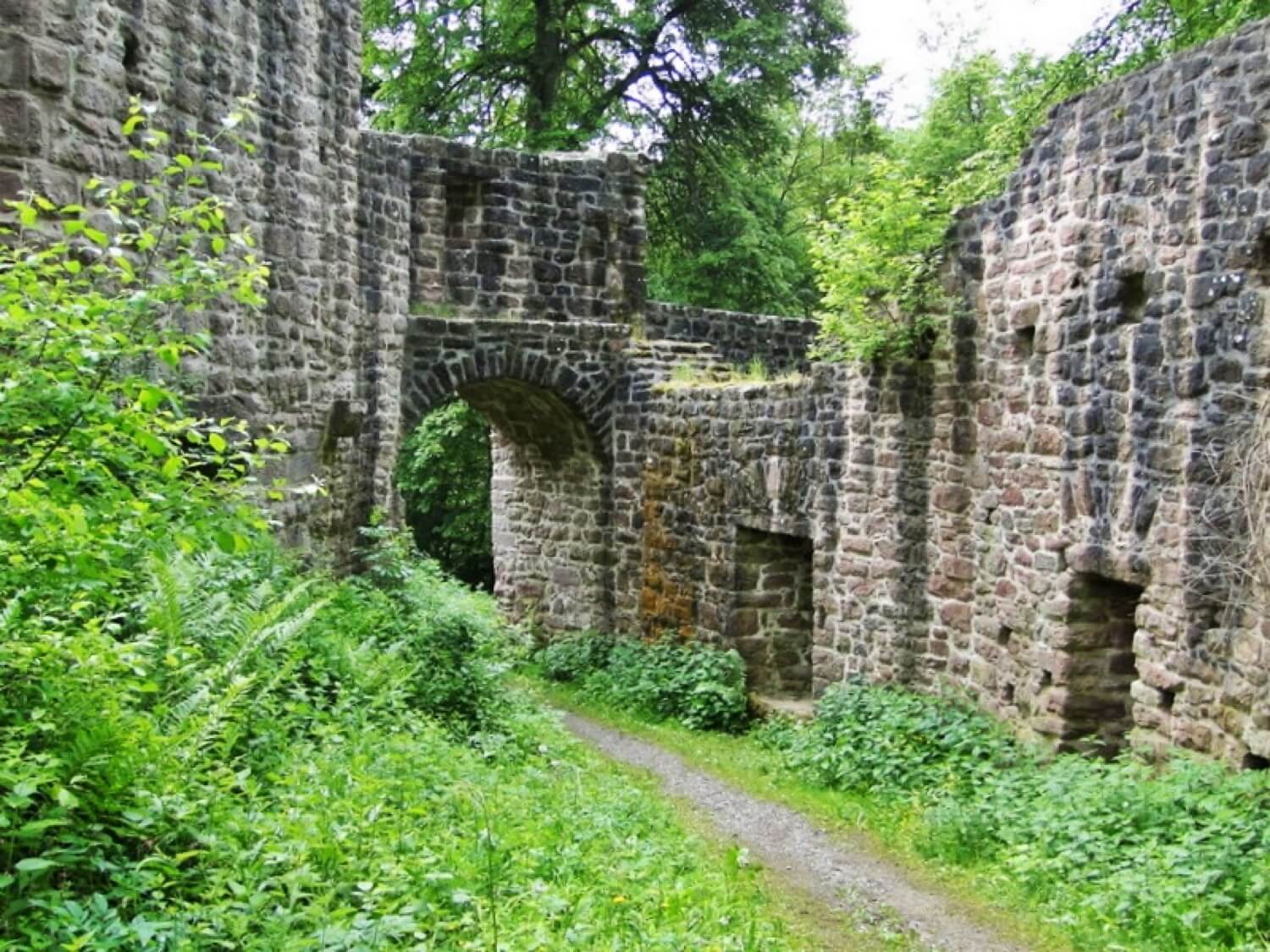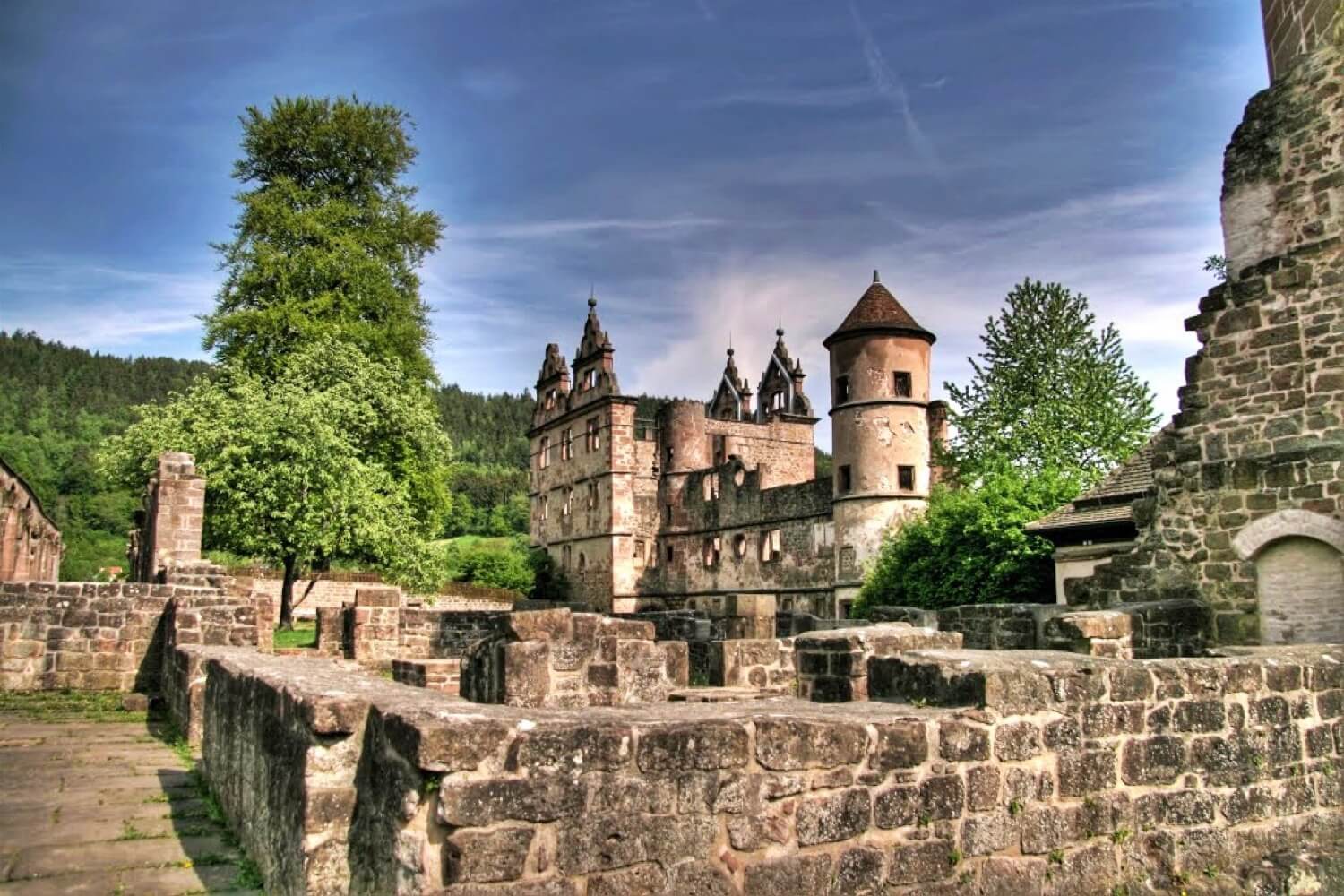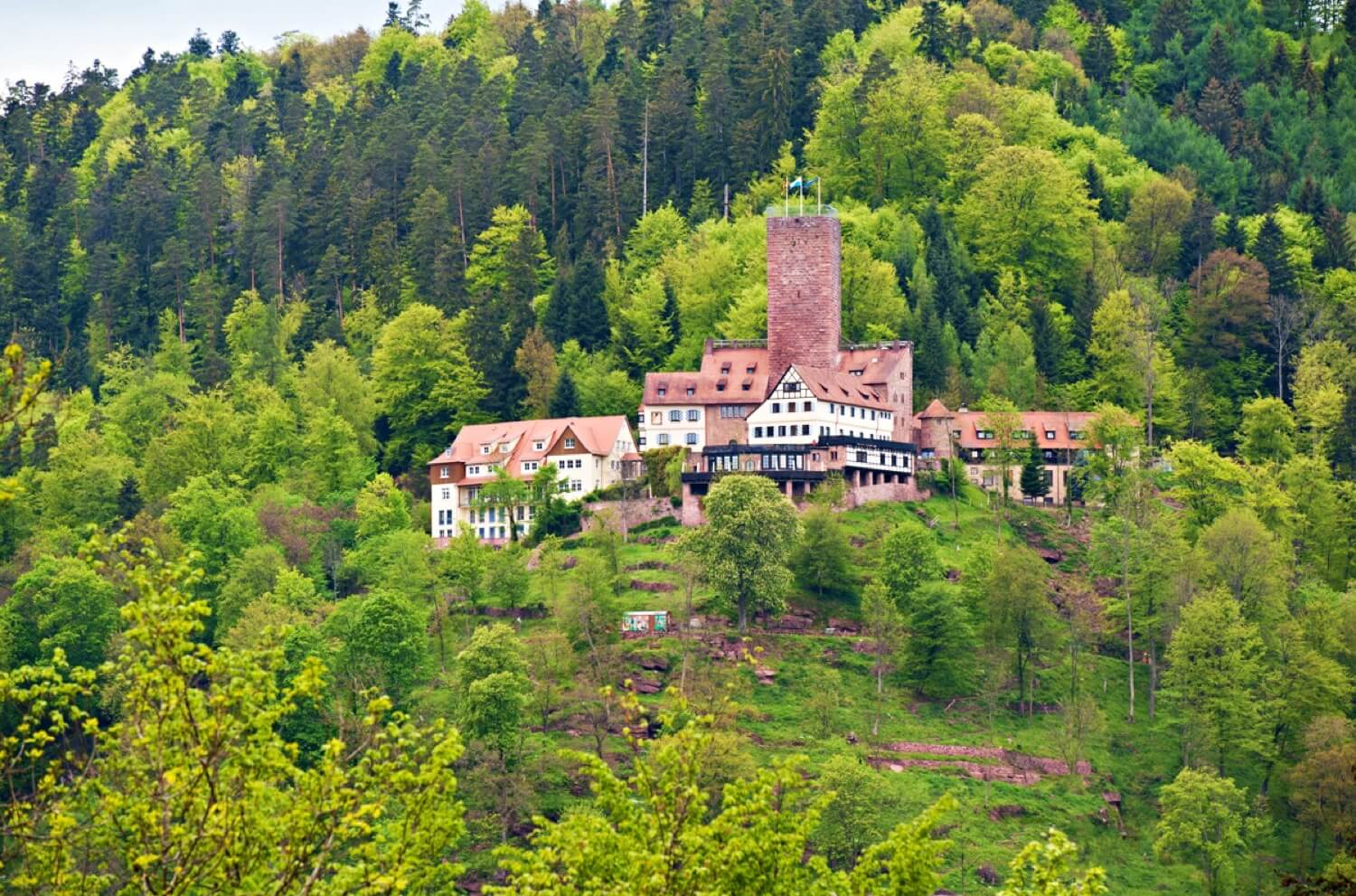Hohennagold Castle
Karlsruhe Baden-Württemberg Germany
castle, chateau
Burg Hohennagold
Karlsruhe Baden-Württemberg Germany
castle, chateau
Hohennagold Castle is a ruined castle situated on a hill, the so-called Schlossberg (castle mountain), overlooking the Black Forest town of Nagold
Die Burg Hohennagold ist die Ruine einer Höhenburg in Nagold im Landkreis Calw in Baden-Württemberg
Previous names
Hohennagold Castle, Burg Hohennagold
Description
Hohennagold Castle is a ruined castle situated on a hill, the so-called Schlossberg (castle mountain), overlooking the Black Forest town of Nagold. The hill consists predominantly of porphyritic rock. The ruins represent a relatively well-preserved 12th-century castle. The keep behind the curtain walls, a tower in the north-western corner of the complex as well as the outer ward with half-round and angular towers, are still visible. Around the castle there appears to have been a moat.
An early medieval fortification was possibly erected at the location of the future castle around 750 by Count Ruodbrecht, one of Charlemagne's uncles.
The original castle was built around 1100 by the Counts of Nagold, who became the Counts palatine of Tübingen in 1145. The castle complex was extensively expanded between 1153 and 1162.
In the middle of the 13th century the castle passed into the possession of the Counts of Hohenberg. Thereafter, one branch of this family called itself Counts of Nagold and had the castle transformed into their residence in the 13th and 14th century. In 1364 the sold the castle to the Counts of Württemberg. The new owners added bastions and towers to the outer ward and had the castle occupied by their ministeriales. Towards the end of the Thirty Years' War, the castle was conquered by Bavarian troops in 1645 and severely damaged. In 1646 the remnants of the castle were pulled down.
In 1945 the northwest tower was destroyed by a low-level attack carried out by Allied planes. The castle remains were tentatively restored after World War II, trying to preserve the castle as a ruin.
Die Burg Hohennagold ist die Ruine einer Höhenburg in Nagold im Landkreis Calw in Baden-Württemberg.
Die Ruine steht auf dem 529,8 m ü. NHN hohen Nagolder Schlossberg, einem Südsporn im Knie der hier eine etwa 135°-Kurve nach Norden schlagenden Nagold, die wenige Kilometer zuvor aus dem nordöstlichen Schwarzwald heraustritt in die weite Kulturlandschaft des Gäus nordwestlich des oberen Neckars. Gegenüber dem Porphyrfelsen Schlossberg mündet über 130 m tiefer deren längster und rechter Oberlaufzufluss Waldach.
Die ursprüngliche erste Burg Hohennagold wurde von den Grafen von Nagold (seit 1145 Pfalzgrafen von Tübingen) um 1100 errichtet. Von 1153 bis 1162 wurde die Burganlage stark erweitert. Aus der Linie der Tübinger Pfalzgrafen entstammte das Geschlecht der Grafen von Montfort.
In der Mitte des 13. Jahrhunderts ging die Burg an die Grafen von Hohenberg über. Ein Zweig dieser Familie nannte sich künftig Grafen von Nagold und baute die Burg im 13. und 14. Jahrhundert zur Residenz aus.
Im Jahr 1363 verkauften sie die Burg an die Grafen von Württemberg, welche die Anlage vor allem im 15. Jahrhundert um den äußeren Zwinger mit Bastionen und Ecktürmen ergänzten und die Burg mit ihren Dienstleuten besetzt hielten. Im Jahr 1645/46 im Dreißigjährigen Krieg wurde die Burg zerstört.
In der Ruine sind noch heute die Grundmauern diverser Bauten des Burgkerns enthalten. Außerdem findet man noch weite Teile der Vorburg mit den Ruinen von Wehrtürmen und dem Zwinger der Vorburg. Der Bergfried und der 25 m hohe Wehrturm, der bestiegen werden kann, sind erhalten.
Die Burg ist jederzeit frei zur Besichtigung zugänglich.
Useful information
Gratis
Gratis
Gratis
Gratis
- Wanderwege
- Aussichtsturm
- Beeindruckende Aussicht
- Erholungsgebiete
- Informationstafeln
- WC
info@nagold.de
Die Ruinen der Burg
-
External links
Nearby castles
